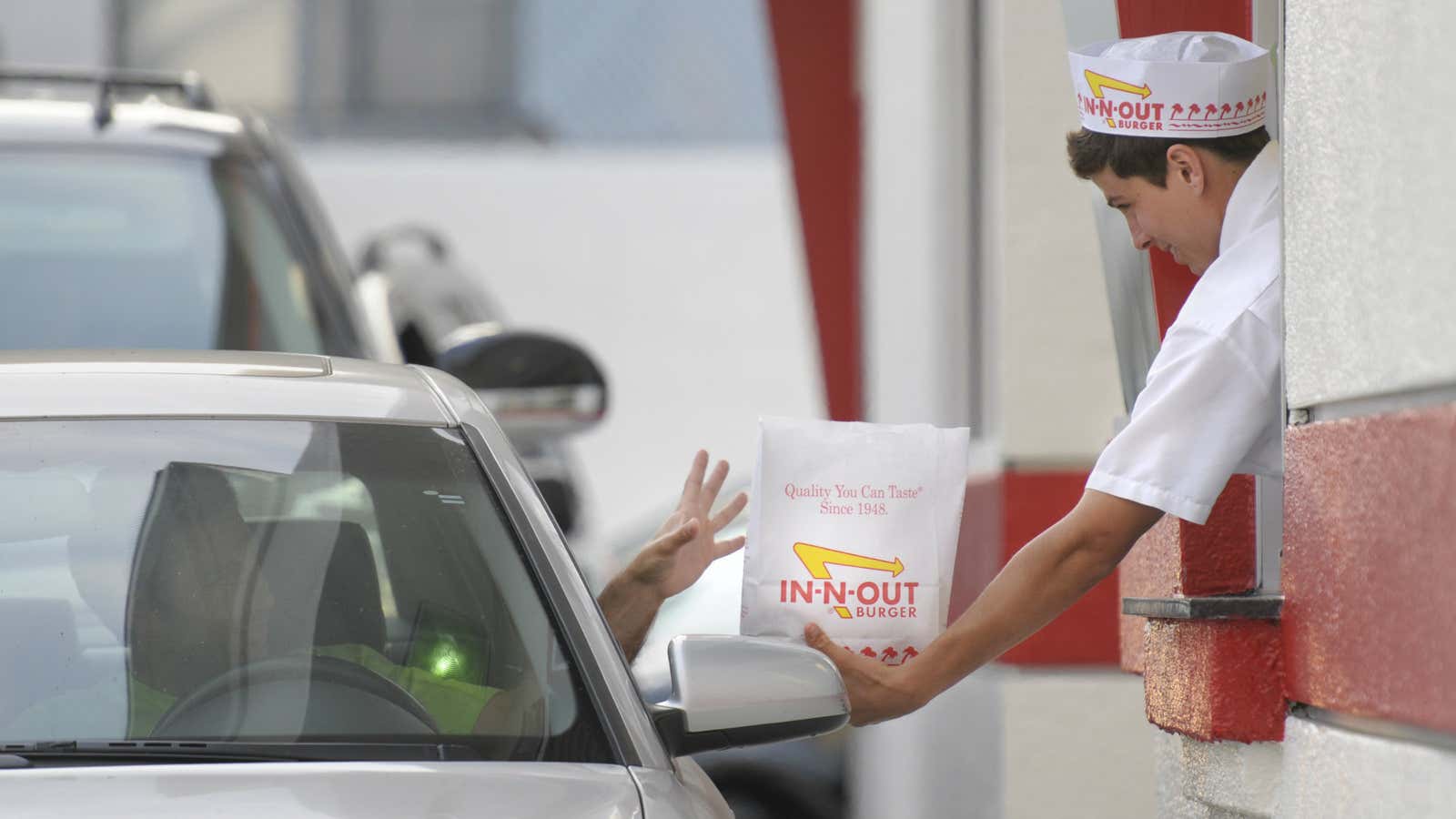Chef David Chang’s restaurants are pilgrimage sites for foodies from Sydney to New York. But the founder of the Momofuku restaurant group recently disclosed that he gets inspiration on kitchen management from a US fast-food chain where a double cheeseburger, fries, and a drink together cost less than a small plate of pea shoots at Chang’s Momofuku Noodle Bar in New York.
Chang is a fan of In-N-Out Burger, a popular chain of drive-through joints scattered across the western US. On the Aug. 1 episode of the “House of Carbs” podcast, he told hosts Joe House and Bill Simmons that he goes to In-N-Out for the food—his standard order is a grilled-cheese sandwich with grilled tomatoes served “animal style.” But he also goes just to watch the staff at work.
“Every time I go to In-N-Out, if there’s time permitting, I stay there until I see something happen,” Chang said. “I stay there until I see one of the employees drop something.”
He went on to explain what he meant:
David Chang: ‘Cause it’s always so busy. They drop something, they don’t know they drop something, and then someone else picks it up.… Let’s just say they dropped a napkin. They pick up the napkin. They don’t go, “Hey jackass, you dropped this,” like most people would do. They pick it up, they don’t say anything.
Bill Simmons: They get rid of it.
David Chang: Yeah. They do their job.
Bill Simmons: Great team chemistry at In-N-Out Burger.
David Chang. Great team chemistry!
Bill Simmons: Like the Warriors. Like the 2017 Warriors.
David Chang: Everyone has each other’s backs. And they’re like 17, 18-year-old kids. It takes me like six months to train somebody who wants to be a chef to actually care about something like that. I’ve always, always admired that.
Quartz contacted the Irvine, California-based chain to ask what makes their staff run smoothly.
“Our Associates do work hard to make sure our customers have a great experience,” vice president of operations Denny Warnick said via email. “A higher pay structure is helpful in making that happen but it is only part of our approach. It is equally important to us that we treat our Associates very well and maintain a positive working environment in all of our restaurants.”
The company has a 4.3 out of 5.0 rating on Glassdoor from nearly 900 current or former employees, with 90% saying they’d recommend the organization to a friend. (By comparison, 56% of McDonald’s employees on the site would do the same.) Employees rated In-N-Out especially high in compensation (4.4) and culture (4.5), consistent with Warnick’s emphasis on higher pay and a positive working environment.
Previous research has found that organizations that show concern for employees’ development and welfare have higher levels of productivity and job satisfaction. Unhappy workers make more mistakes (paywall), have more accidents, and are more likely to be absent.
One key to maintaining happiness among the rank-and-file is to ensure good behavior at the top of an organization. Researchers have found that employees are more motivated to help co-workers when they see people in leadership positions going out of their way to do the same. If Chang wants In-N-Out levels of cooperation in his own restaurants, he should probably make sure he’s picking up dropped napkins, too.
